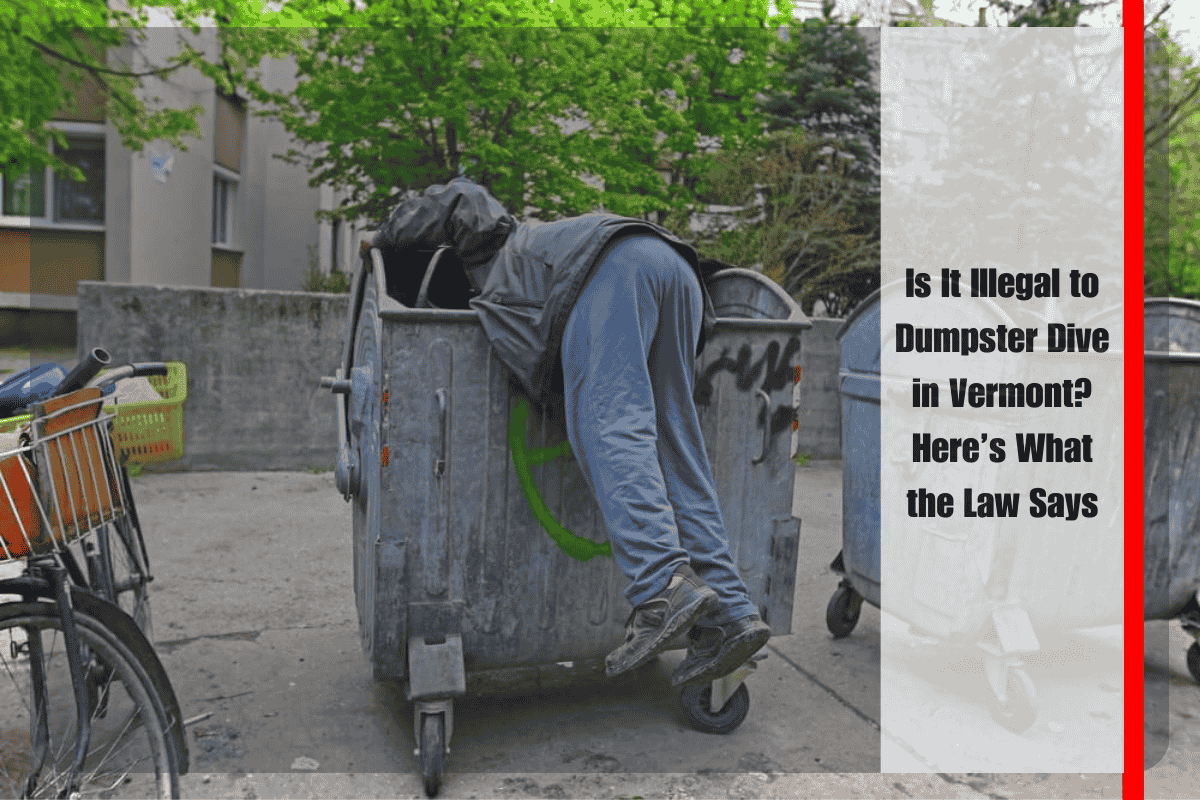Dumpster diving in Vermont is generally legal, but the application of the law can be somewhat unclear and dependent on location. Under U.S. law, once trash is placed on public property such as the curbside for collection, it is considered abandoned, and therefore individuals can legally retrieve items from these locations without it being theft. This principle was reinforced by the U.S. Supreme Court ruling in California v. Greenwood (1988), which stated that there is no reasonable expectation of privacy for trash left for collection.
In Vermont, dumpster diving on public property is permitted, but the situation becomes more complicated when dumpsters are located on private property, such as behind stores or inside fenced areas. In these cases, dumpster diving may be deemed trespassing or theft, especially if there are “No Trespassing” signs or if the dumpster is locked. Because of these restrictions, local ordinances often dictate the specific legality in different municipalities.
Vermont has no statewide law explicitly banning dumpster diving, but the practice can be challenged depending on the property’s ownership and local rules. For example, while some areas may tolerate or overlook the practice, others may take legal action if perceived as trespassing or if the person is disturbing the property owner’s rights. Additionally, diving into dumpsters accessible from private property without permission can lead to legal consequences.
Public safety and sanitation concerns are also factors that influence how authorities enforce dumpster diving rules. Businesses and property owners in Vermont have the right to protect their property and may enforce rules through signs or by restricting access, which divers must respect.
Dumpster diving in Vermont is legal if conducted on public property where the trash is considered abandoned. However, diving on private property without permission can lead to trespassing or theft charges. As the local interpretation of these rules can vary, divers are advised to check local ordinances, be aware of signage, and seek permission when necessary to avoid legal troubles. The nuance in Vermont’s approach reflects a balance between respecting property rights and allowing access to discarded items on public property.
Sources
(https://www.theenvironmentalblog.org/2025/04/is-dumpster-diving-legal/)
(https://www.reddit.com/r/DumpsterDiving/comments/1q36ze/is_dumpster_diving_legal_in_your_area_heres_how/)
(https://www.rakevt.org/2023/02/11/the-only-thing-between-you-and-your-next-meal/)
(https://www.rolloffdumpsterdirect.com/dumpster-diving-illegal/)
(https://worldpopulationreview.com/state-rankings/dumpster-diving-legal-states)












